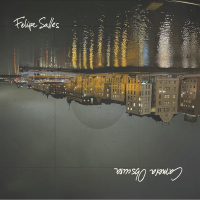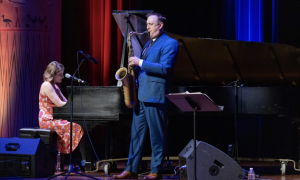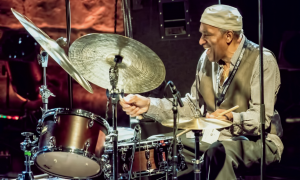Home » Jazz Articles » Catching Up With » Ben Sidran: The First Existential Jazz Rapper
Ben Sidran: The First Existential Jazz Rapper
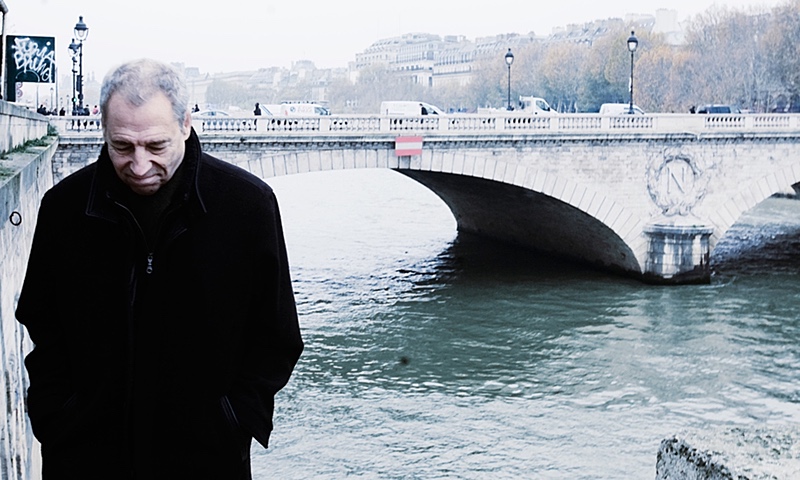
In jazz, they want you to be yourself, but they only want you to be yourself in their category, and if you're not, it becomes your problem and not theirs.

Pharoah Sanders
saxophone, tenor1940 - 2022

Ben Webster
saxophone, tenor1909 - 1973
He could also imagine making the natural transition from vocals to spoken word. "In the last few years, I've been going directly to the spoken word and rap. For years I thought I had to soft pedal that, but at one point, it seemed time to own it. The London Times called me 'the first existential jazz rapper.' Spoken word is a very respected tradition. If you go back to Irving Berlin, Harry "the Hipster" Gibson,

Louis Jordan
saxophone, alto1908 - 1975

Bob Dylan
guitar and vocalsb.1941
Sidran's latest recording Blue Camus (produced by Leo Sidran) was launched November 8 in Amsterdam at the start of a mini European tour that included pit stops in Copenhagen, Paris, and Madrid, at the usual venues: North Sea Jazz Club, Montmartre, Sunset, and CafĘŽ Central. It concluded stateside in New York City on December 3 and 8 at the Jazz Standard and Brotherhood Synagogue before two final gigs in Davenport Iowa at the Redstone Room, River Music Experience. It will be released in the U.S. in Spring 2015, and as Sidran explains: "It's a natural title, encompassing the existential and the blues. If you understand about existentialism, the links with Kerouac and Paris, it's part of that canon." He expresses concern about potential listeners connecting with the title and the contents. "For instance, when people don't recognize Camus and pronounce it Cay-Mus or Ca-moose, it's shocking, the number of people who don't get it. I don't know if they'll open it up and see it's about philosophy, jazz musicians are true philosophers. I thought we were giving them a clue to what I'm all about, but instead we gave them a problem to solve. It's surprising that these days people aren't in tune with it. It's the repertoire of not being educated but being aware. It's not the dumbing down, it seems more like the disillusion of the canon. It's like I'm going through the forest leaving crumbs behind me. Didn't it follow (the last CD) Don't Cry for No Hipster, and didn't the Hipster follow Dylan Different?," he asks, referring to his two previous releases.
Our conversation shifts to jazz culture. The importance of mentoring young musicians, and not just learning by rote, what some call conservatory syndrome. "When Leo was 16 we started playing gigs together at Mr. P's Place, a funky little club in Madison.

Frank Morgan
saxophone, alto1933 - 2007

Richard Davis
bass, acoustic1930 - 2023

Betty Carter
vocals1929 - 1998
Ben nods in assent. "It's why the great jazz cats were so heartfelt. I'm old enough to remember coming up and playing with

Johnny Griffin
saxophone, tenor1928 - 2008

Bunky Green
saxophone, alto1933 - 2025

Wynton Marsalis
trumpetb.1961

Art Blakey
drums1919 - 1990
Sidran has never been at a loss for words. In 1971, he wrote his PhD dissertation at the University of Sussex, which resulted in a published book, which remains in print. Black Talk: How the Music of Black America Created a Radical Alternative to the Values of Western Literary Tradition. There were other books along the way: Talking Jazz, An Illustrated Oral History (1991), and Ben Sidran: A Life in the Music (2003). In 2012, still another book was published: There Was a Fire: Jews, Music and the American Dream. He speaks with pride about this full circle odyssey. "In the last 45 years I was so glad to be able to write about the Jewish and the Black experience. My feeling is that without Jews and Blacks there would be no American popular culture. If you go through it, that's where it came from and that I was able to live long enough to write about those connections, it's a kind of solace. To me, Black Talk and There is a Fire are book ends."
He says that "the journey is as much internal as it was external. After getting the PHd, I wasn't going to study the information any more. I was going to become the information. I had spent many years learning and studying the impact of jazz. In jazz, the musician is the message, not the music. It's the way you lead your life. And I discovered 45 years ago that it's about self-transformation. When you work on the music, you're working on yourself. Writing There is a Fire was the hardest thing I've ever done. It took ten years and it has been a wonderful trip for me. It came on the heels of the CD, Life's a Lesson. And it led me down an amazing path that turned out to be internal. The Jewish question was always my thing, I just didn't know it. Who is a Jew, what is a Jew? They turned out to be my questions. In the U.S. these are secular questions, and it's a rewarding way to frame your story. It's about living the engaged life, not looking for answers but asking the right questions." Part of remaining engaged means giving lectures and concerts at synagogues throughout the United States. "When I do the lectures at synagogues and other Jewish venues, I approach them as I do any jazz gig, with an open heart, a head full of ideas and a faith in my mouth to connect the two."
What's up for 2015? After Blue Camus is released in the spring, he's got two projects. For starters, he'll be ghosting the autobiography of Tommy LiPuma, legendary Grammy award-winning producer (

Barbra Streisand
vocalsb.1942

Miles Davis
trumpet1926 - 1991

Al Jarreau
vocals1940 - 2017

George Benson
guitarb.1943

Natalie Cole
vocals1950 - 2015

Michael Franks
vocalsb.1944

Diana Krall
piano and vocalsb.1964
I couldn't resist asking if he thinks these are good times for jazz. "The real answer, the true answer is that jazz is 20th century music and this is the 21st century. It won't evolve from the culture but from the concept. The culture that gave rise to it is no more. That doesn't mean that it doesn't get played. Bach and Mozart still get played." Over a cup of coffee or on the podium Sidran engages in friendly banter, spontaneously citing the great masters of jazz, like some encyclopedia of the genre. In his 1981 composition "Piano Players," he pays homage to the great keyboard masters, citing one virtuoso after the other:

Bud Powell
piano1924 - 1966

Wynton Kelly
piano1931 - 1971

Art Tatum
piano1909 - 1956

Phineas Newborn, Jr.
piano1931 - 1989

Thelonious Monk
piano1917 - 1982

Cecil Taylor
piano1929 - 2018

George Shearing
piano1919 - 2011
The rapport with father and son is apparent on the bandstand. There is an intense communication between keyboards and piano (Leo often joins in the vocals), as well as with seasoned members Ricky and Billy Peterson, on Hammond Organ and bass, respectively. Leo explains that "manager is not an appropriate term for what I'm doing, since I'm a band member as well as major domo. I like being responsible for the inner workings of the band. Sometimes it's just a question of...," he pauses a moment, then shrugs and says: "I'm 37 and have a young daughter but I'm still referred to as 'Kid.' Maybe we can reshuffle the deck a little bit. I see these guys as my elders. I want to protect them as I get older. I feel like a jockey sometimes, dragging them out, giving them encouragement, getting them to run a little harder. I know they still want to." Father and son share a telepathic glance and he continues. "Every record, Ben thinks is his last. Every tour, he thinks it's the last. It's connected to Ben's attitude about being in the present and to only value this moment. Ultimately that's all you got. He says that 'if you live every day like it's your last, one day you'll be right."
Photo Credit: Pierre Darmon
Tags
ben sidran
Catching Up With
Joan Gannij
Pharoah Sanders
ben webster
London
Louis Jordan
Bob Dylan
Amsterdam
Copenhagen
Paris
Madrid
North Sea Jazz Club
New York City
Jazz Standard
Frank Morgan
Milwaukee
Richard Davis
Betty Carter
Johnny Griffin
Bunky Green
wynton marsalis
Art Blakey
Barbra Streisand
Miles Davis
Al Jarreau
george benson
Natalie Cole
Michael Franks
Diana Krall
Bud Powell
Wynton Kelly
Art Tatum
Phineas Newborn, Jr.
Thelonious Monk
Cecil Taylor
George Shearing
Comments
PREVIOUS / NEXT
Support All About Jazz
 All About Jazz has been a pillar of jazz since 1995, championing it as an art form and, more importantly, supporting the musicians who make it. Our enduring commitment has made "AAJ" one of the most culturally important websites of its kind, read by hundreds of thousands of fans, musicians and industry figures every month.
All About Jazz has been a pillar of jazz since 1995, championing it as an art form and, more importantly, supporting the musicians who make it. Our enduring commitment has made "AAJ" one of the most culturally important websites of its kind, read by hundreds of thousands of fans, musicians and industry figures every month.




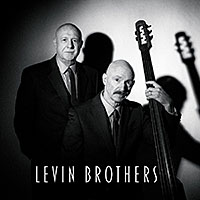



 Buy Now
Buy Now



